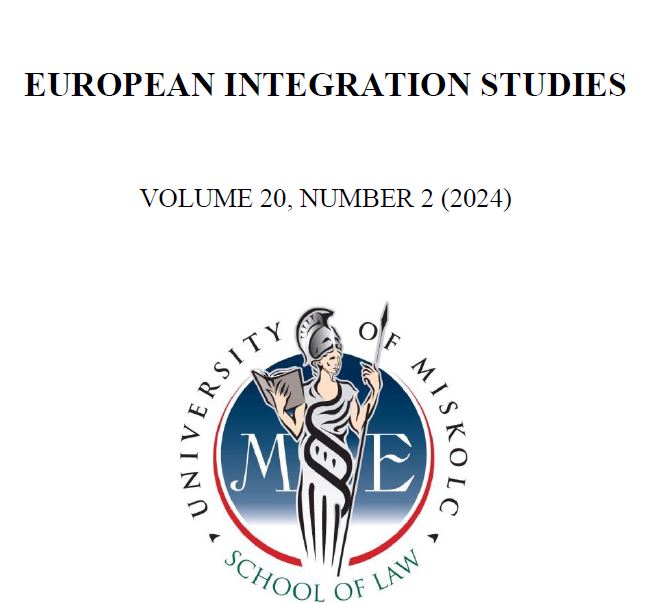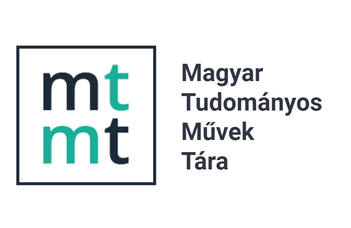Legal regulation on the use of artificial intelligence for national security purposes in Europe
DOI:
https://doi.org/10.46941/2024.2.5Keywords:
AI, national security, AI Act, AI Convention, personal data protection.Abstract
This paper analyses the regulation of the use of AI for national security purposes in Europe. After a brief mapping of most relevant uses of AI for national security purposes, applicable legal framework is analysed. Both the EU AI Act and the Council of Europe's AI Convention provide for broad exceptions regarding the use of AI for national security purposes. This covers activities of both public and private entities acting in the national security domain. In such circumstances, personal data protection law is seen as possessing the most direct impact on the use of AI for national security purposes. In this context, the notion of personal data is explained, emphasizing that any information relating to an identified or identifiable person qualifies as personal data under both the GDPR and Convention 108. The processing of this data, which is broadly defined, can be subject to data protection laws even in national security contexts, provided it meets certain criteria.
The research shows that while there is a lot of uncertainty when it comes to the application of personal data rules to national security situations, existing case-law indicates that application of those rules is not fully excluded. On the contrary, it is to be expected that at least when private entities are involved in data processing operations, personal data protection law might prove to be very effective. Also, it is to be anticipated that the ECHR will play a major role in ensuring that uses of AI for national security purposes remain in line with requirements of democratic society.
References
Benzie, A., Montasari, R. (2022) ‘Artificial Intelligence and the Spread of Mis- and Disinformation’, in Montasari, R. (ed) Artificial Intelligence and National Security. Springer, Cham, pp. pp. 1-18; https://doi.org/10.1007/978-3-031-06709-9_1.
Dieu, O., Montasari, R. (2022) ‘How States’ Recourse to Artificial Intelligence for National Security Purposes Threatens Our Most Fundamental Rights’, in Montasari, R. (ed) Artificial Intelligence and National Security. Springer, Cham, pp. 19-45; https://doi.org/10.1007/978-3-031-06709-9_2.
Ferdin, J. J., F., Regin, R., Chinnusamy, K., Suman Rajest, S., Paramasivan, P. (eds.) (2024) Explainable AI Applications for Human Behavior Analysis. Hershey, PA: IGI Global Scientific Publishing, https://doi.org/10.4018/979-8-3693-1355-8.
Jurić, M. (2024) ‘Legal Aspects of Military and Defence Applications of Artificial Intelligence Within the European Union’, in Zombory, K., Szilágyi, J. E. (eds) Shielding Europe with the Common Security and Defence Policy: The EU Legal Framework for the Development of an Innovative European Defence Industry in Times of a Changing Global Security Environment, Miskolc-Budapest: Central European Academic Publishing, pp. 395-436.
Jensen, B., Whyte, C., Cuomo, S. (2019) Algorithms at War: The Promise, Peril, and Limits of Artificial Intelligence, International Studies Review, 22(3), pp. 526–550.
Klamert, M., Kellerbauer, M., Tomkin, J. (2019) Commentary on the EU: Treaties and the Charter of Fundamental Rights. 2nd Ed, Oxford: Packmm.
Montasari, R. (ed) (2022) Artificial Intelligence and national security. Springer, Cham; https://doi.org/10.1007/978-3-031-06709-9.
Palmiotto, F. (2025) The AI Act Roller Coaster: The Evolution of Fundamental Rights Protection in the Legislative Process and the Future of the Regulation. European Journal of Risk Regulation, 1–24; https://doi.org/10.1017/err.2024.97.
Szappanyos, M. (2023) ‘Artificial Intelligence: Is the European Court of Human Rights Prepared?’, Acta Humana – Emberi Jogi Közlemények, 11(1), pp. 93–110; https://doi.org/10.32566/ah.2023.1.6.
Article 29 Working Party (2007) Opinion 4/2007 on the concept of personal data, [Online]. Available at: https://ec.europa.eu/justice/article-29/documentation (Accessed: 10 September 2024).
Babuta, A., Oswald, M. Janjeva, A. (2020) Artificial Intelligence and UK National Security: Policy Considerations. RUSI, [Online]. Available at: https://static.rusi.org/ai-national-security-final-web-version.pdf (Accessed: 10 September 2024).
Council of Bars & Law Societies of Europe (CCBE) (2019) Recommendations on the protection of fundamental rights in the context of ‘national security’, [Online] Available at: https://www.ccbe.eu/fileadmin/speciality_distribution/public/documents/SURVEILLANCE/SVL_Guides_recommendations/EN_SVL_20190329_CCBE-Recommendations-on-the-protection-of-fundamental-rights-in-the-context-of-national-security.pdf (Accessed: 10 September 2024).
Council of Europe (1950) Convention for the Protection of Human Rights and Fundamental Freedoms, [Online]. Available at: https://www.echr.coe.int/documents/d/echr/convention_ENG (Accessed: 10 September 2024).
Council of Europe (1981) Convention for the Protection of Individuals with regard to Automatic Processing of Personal Data, [Online]. Available at: https://rm.coe.int/1680078b37 (Accessed: 10 September 2024).
Council of Europe Commissioner for Human Rights (2015) Democratic and effective oversight of national security services, [Online]. Available at: https://rm.coe.int/1680487770 (Accessed: 10 September 2024).
Council of Europe (2024) Council of Europe Framework Convention on Artificial Intelligence and Human Rights, Democracy and the Rule of Law, [Online]. Available at: https://rm.coe.int/1680afae3c (Accessed: 5 March 2025).
ECHR (2024) Personal data protection [Online]. Available at: https://prd-echr.coe.int/documents/d/echr/FS_Data_ENG (Accessed: 5 March 2025).
European Court of Human Rights (ECtHR) (2013) National security and European case-law, [Online]. Available at: https://rm.coe.int/168067d214 (Accessed: 10 September 2024)
Taddeo, M., Ziosi, M., Tsamados, A., Gilli, L., Kurapati, S. (2022) Artificial Intelligence for National Security: The Predictability Problem, [Online]. Available at: https://cetas.turing.ac.uk/sites/default/files/2022-09/research_report_ai_predictability_problem_vfinal_3.pdf (Accessed: 10 September 2024).
Venice Commission (2015) Report on the Democratic Oversight of Security Services, [Online]. Available at: https://www.venice.coe.int/webforms/documents/default.aspx?pdffile=CDL-AD(2015)010-e (Accessed: 10 September 2024).





